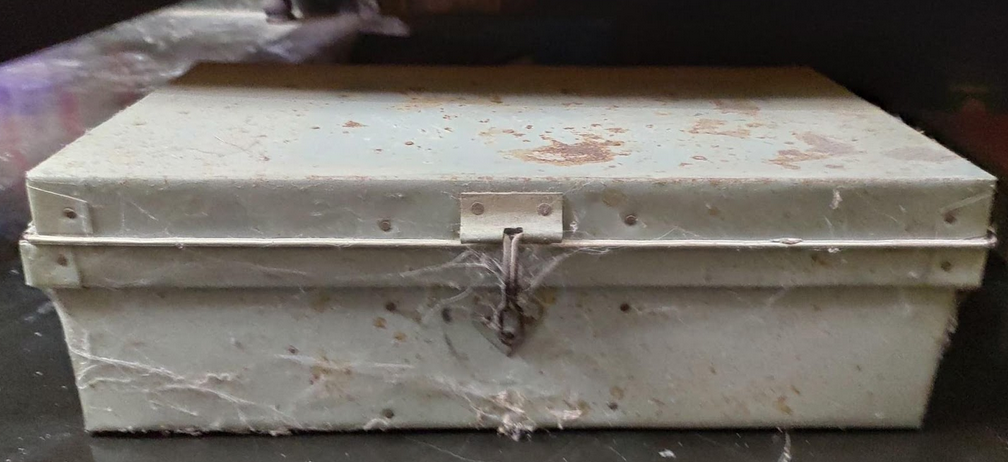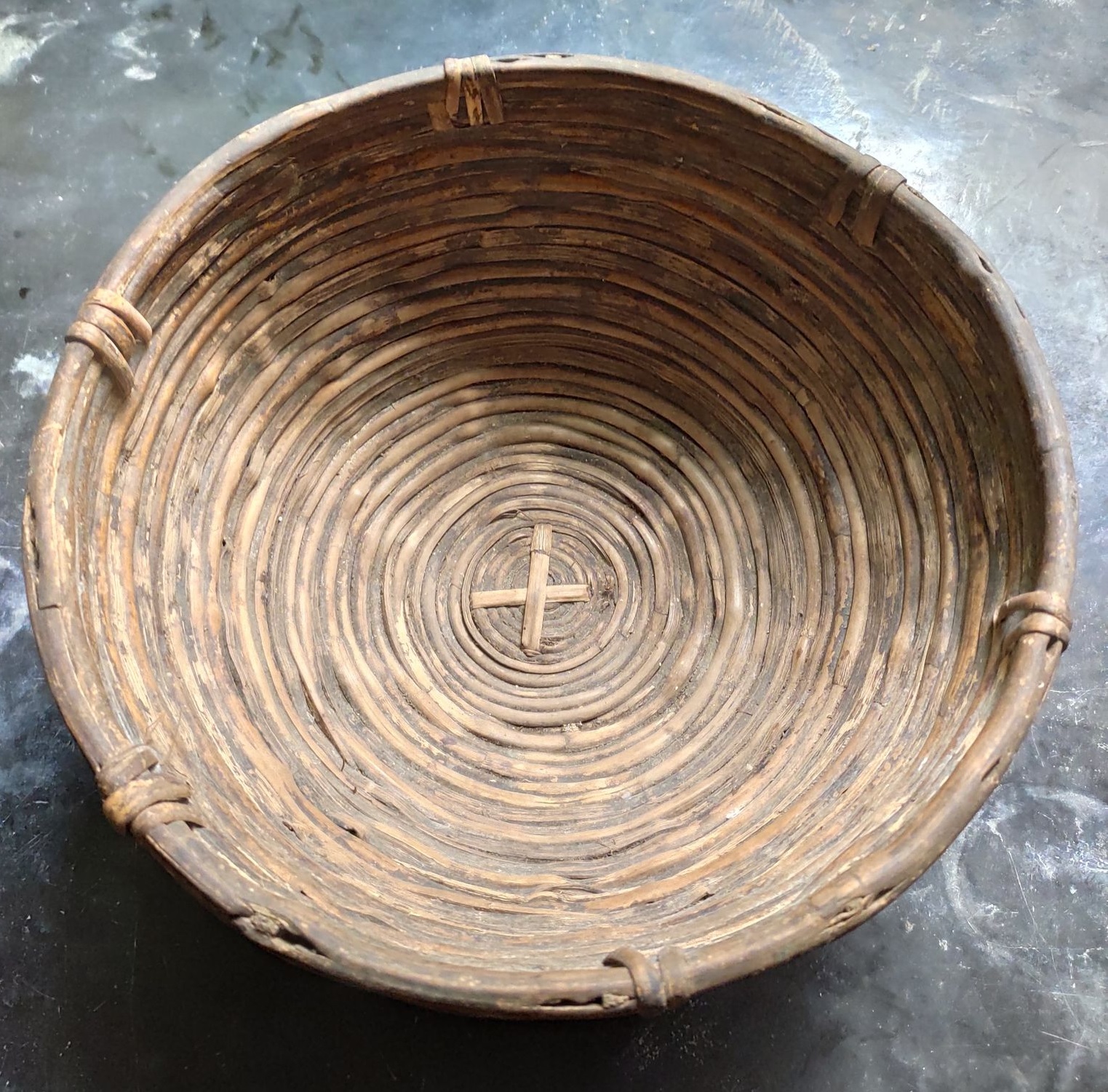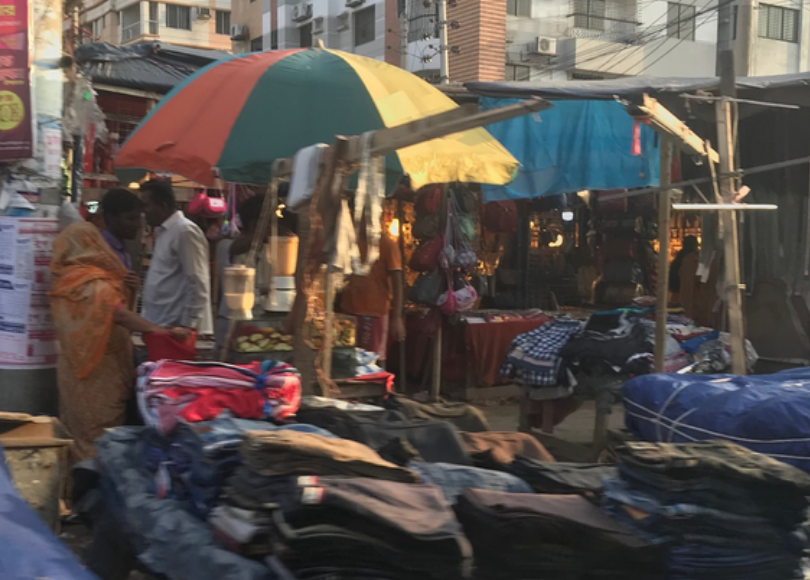A Forgotten Photograph
Rafan had recently moved from Dhaka to Meherpur, a district in the furthest corner of Bangladesh. One morning he was arranging his bedroom. He pulled out a middle-sized tin box from under the bed, in which he used to keep his personal belongings when he was a student. Before leaving Dhaka, all of his friends sold their boxes since there was no longer any use for them. However, he had kept his box.

Photograph by Rajon Mahmood
The box was heavily covered with dust, so he took a used T- shirt, swept away the dust and opened it. Inside, he found his old personal diaries*, which he had forgotten. Once he used to keep his whole life recorded in these old diaries. He began to turn the mouldy* pages of one of the old torn books.
Suddenly, he found an old blurred* black and white photograph of a man. He carefully wiped the photograph with a soft cloth and recognised that it was a picture of his father whom he had lost when he was only seven. The photograph was the only memory of his father that he had and it had been kept hidden all this time.
It was hard for him to remember what his father had looked like. Rafan tried to go back into his memories of the past. He remembered that once he had found a page containing beautiful handwriting. Someone had written so beautifully it looked as if it had been printed.
His uncle, Sofiqul Islam, was nearby repairing an adli.

Photograph of an adli by Rajon Mahmood
Rafan jumped up from his reading chair and rushed to his uncle. He asked his uncle if he could recognise the handwriting. His uncle started to read, ““Notun Da” by Sarat Chandra Chattopadhyay”. He stopped. “Your father wrote this.” he said.
Rafan knew it, but he had wanted to be sure. He remembered that he had torn the page from a hand written copy book and he had kept it inside his textbook*.
When he was a child, Rafan’s father used to carry him about on his shoulders, which he absolutely loved. He loved it so much that when his father used to call him he ran and stood at the edge of the rowak, an extended front part of their old house. He knew that it would be easier for him to get onto his father shoulders from there, and that he would have a pleasant ride holding his father hair with his small hands. He enjoyed the rides so much, since they meant that he could roam* with his father around different neighbourhoods and eat many wonderful things which his father’s friends offered him. When he roamed with his father he felt as though he were a prince* riding a horse.
Every Tuesday and Friday, his father took him to their local bazaar*. With a few taka, his father bought him zilapi, which Rafan especially liked because of their crispness* and sweet taste. However, his mother, who had been married to his father at the age of 13, was upset by her husband gipsy* nature and she did not approve of these adventures.

Photo by Cherie Brown
Years passed by in that way, then in 1998 there was a terrible flood throughout the country. Rafan’s father went to visit a relative’s house near the Indian border, which at that time had many big spaces through which people could easily pass and visit their relatives in India. One day, Rafan’s father also left, but he never returned.
Rafan took the photograph once again. He could feel how loving his father was towards him. His father’s small, round, smiling face and thin bony figure were now blurred. The black and white photograph was the only treasure left to a son, who after 20 years still believed in his father’s return. Slowly, he put the photograph into an envelope and placed it inside the pages of a new diary. Quietly, he placed it in a drawer and locked it away. In the distance, he could hear his mother calling him. Turning towards her voice, he left the room…
__________________________________________________________
Learning Activities
Vocabulary
-
Words from the second 1000 high frequency General Service List.
| absolutely | cloth | envelope | locked | slowly | thin |
| approve (of) | copy | flood | photograph | suddenly | tin |
| arranging | corner | hair | printed | swept | treasure |
| bony | drawer | hidden | quietly | T-shirt | uncle |
| border | dust | inside | repairing | taste | upset |
| chair | edge | jumped | rushed | terrible | wiped |
-
Glossary – These words are not so common in English, so do not spend time learning them unless you already know all of the words in the list above.
- bazaar (noun) = a marketplace where goods are bought and sold
- blurred (adjective) = not clear
- crispness (adjective) = a little hard when one bite it.
- diary (noun) = a book in which people write their experiences and thoughts. (Plural = diaries)
- gipsy (noun) = a person who moves from place to place, with no fixed home
- mouldy (adjective) = old and covered with a green, black or brown growth.
- prince (noun) = the son of a king
- roam (verb) = to walk around with no clear purpose or destination
- Textbook (noun) = a book from which you learn about a school or university subject area
3. Comprehension Questions
-
Remembering – How did Rafan come to find the old photograph of his father?
-
Remembering - Why had Rafan not looked at the photo for a long time before he opened the tin box?
-
Remembering – Without looking back at the reading, can you remember the word used to describe how Rafan’s mother felt when Rafan’s father took him around the neighbourhood on his shoulders? It has five letters. _ _ _ _ _ . What does it mean?
-
Understanding – What does this sentence mean, “He used to keep his whole life recorded in these old diaries.”?
-
Understanding – Why did Rafan say he “felt like a prince”?
4. Critical Thinking Questions
-
Analysing - What do you think Rafan’s mother wanted him to do instead of going to the bazaar with his father? Why did Rafan’s father want to take him to the bazaar? In what ways (if at all) are a mother’s goals for her child different from the goals of a father for a child? In what ways are they the same? Is this true in all cases? Why/why not?
-
Applying - If you had to create a box of memories like Rafan’s tin box, what would you put inside it, and why?
-
Evaluating – What is the value of keeping objects (such as photographs) from the past? If something sad happens in your life, isn’t it better to try to forget it? Is it better to get rid of things that hold unhappy memories, or to keep them? Why?
-
Creating – Do you keep a diary? Try keeping a diary in English for a week. Use the table below to help you think of things to write. Each day add information to each box. (You may need to draw the table into your book and make the spaces in each box a little larger). In another class, share your diary with your classmates and ask each other questions about your week… in English..
| Sunday | Monday | Tuesday | Wednesday | Thursday | Friday | Saturday | |
| Something that I did today | |||||||
| Something that I ate today | |||||||
| Something I talked about with someone today | |||||||
| Something interesting that I saw today | |||||||
| Something that I can be thankful for today | |||||||
| Something that made me smile or laugh today |